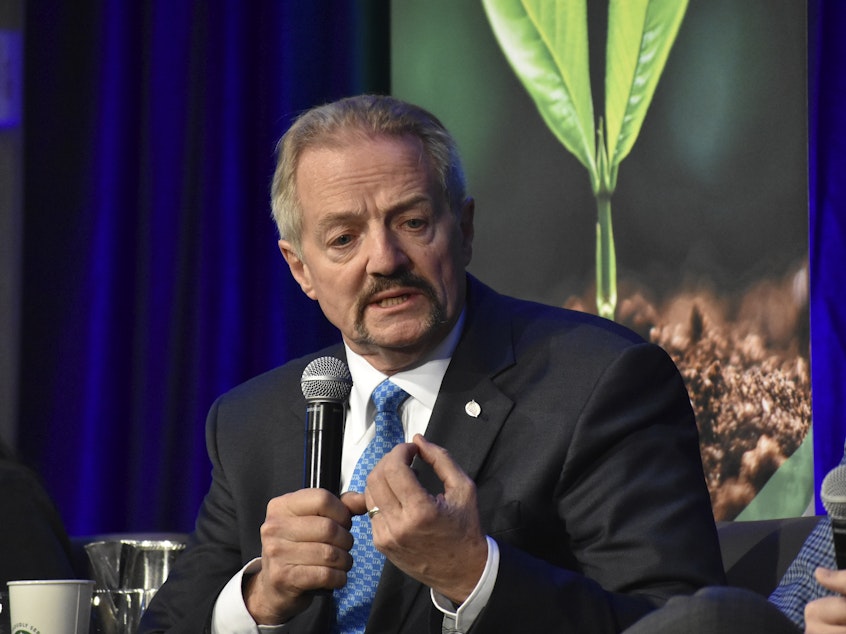Why A Vote For Trump's Lands Appointee May Put Some Western Republicans In A Bind

Republicans up for reelection in key western states could be facing an uncomfortable vote soon as President Trump's controversial nominee to head the Bureau of Land Management is expected to come before the Senate for confirmation.
Last week, the Senate Energy and Natural Resources Committee received final documents and paperwork from the administration that were needed to hold a hearing for William Perry Pendley, who's been serving as the BLM's temporary director since last August.
An actual date has not yet been set. But with the election less than three months out, Democrats are eager to get vulnerable GOP senators on the committee on the record about a nominee who as recently as 2016, suggested that federal public land should be sold to states or private entities.
Sen. Maria Cantwell, D-Wash., said Republicans may be trying to delay a vote until after the election.
"Just because members of Congress don't want to be put on the hot seat about his philosophy that is out of step with the mainstream of the public is very troubling," Cantwell said.
Last week, conservationists began running online political ads in Montana that attempt to align Pendley with that state's Republican Sen. Steve Daines, who also sits on the committee and is in a tight re-election bid against Montana Gov. Steve Bullock.
"Tell Steve Daines our public lands are not for sale, stop Pendley," can be heard on the video paid for by Montana Conservation Voters.
Daines hasn't said how he'd vote. Fellow GOP committee member Sen. Cory Gardner of Colorado hasn't either. Gardner is trying to fend off a challenge from his state's former Gov. John Hickenlooper.
Neither Daines nor Gardner's offices made the senators available for interviews, though the two have said they plan to ask tough questions of Pendley if there's a hearing.
A Daines spokeswoman did call the recent attack ad an attempt to distract from the senator's work getting a huge conservation bill signed last week that puts billions of dollars toward public lands protections, the Great American Outdoors Act.
Sen. Gardner was also seen as key in its passage.
"That was a big political win for those two in particular," said Rob Saldin, a political scientist at the University of Montana. "They'd like to be able to bask in the glow of that for awhile, ideally all the way through election day and now this Pendley nomination risks overshadowing that."
Saldin says Daines and Gardner are in a bind because no western politician can afford to be portrayed as anti-public land. But the two men also can't risk the ridicule of President Trump if they don't support Pendley.
Pendley is especially big news in the West, with its vast open spaces. Here, the decisions of the Bureau of Land Management director or Interior Secretary can have a lot more direct effect on people's daily lives than the president.
"What we're looking at in this vote is somebody with such an extreme and terrible track record for issues that matter in the West," said Jesse Prentice-Dunn with the Center for Western Priorities, a left-leaning think tank in Colorado.
For his part, Pendley has maintained his character is being unfairly maligned. In an interview earlier this year, he insisted he has no plans to transfer or sell off federal public lands, even though, officially, that language is still included in the GOP party platform.
"I've made it very very clear, the president of the United States has made it clear, the secretary of the Interior has made it clear," Pendley said. "The United States government will not engage in the wholesale transfer or disposal of the public lands."
Meanwhile, Pendley's future at the Bureau of Land Management remains uncertain regardless of his pending confirmation hearing.
Two federal lawsuits have been filed accusing the administration of keeping him in an acting role there far longer than what's legal under federal law. One of those comes from Montana's Democratic Gov. Steve Bullock, which Republicans have charged is politically motivated. [Copyright 2020 NPR]

